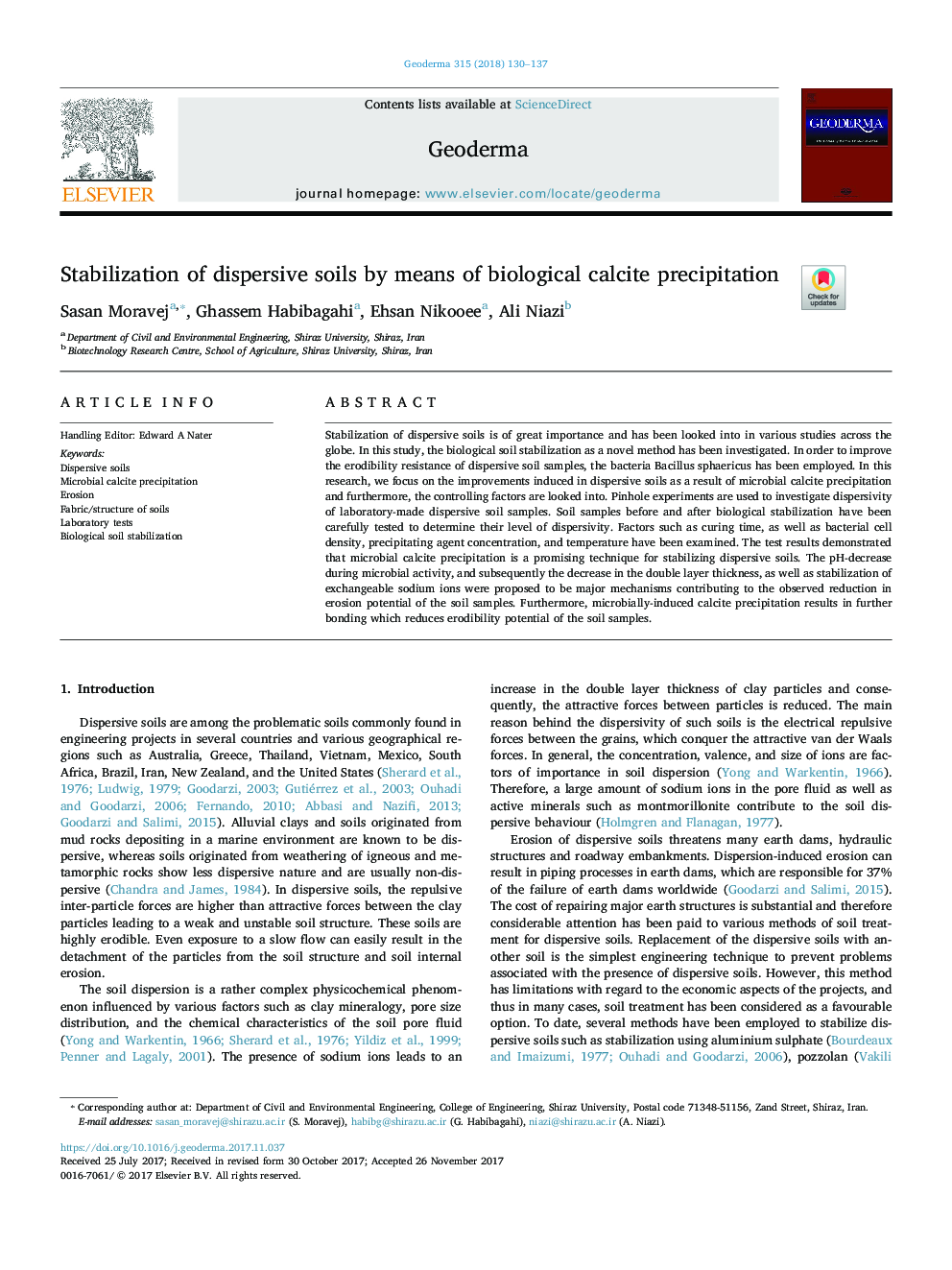| Article ID | Journal | Published Year | Pages | File Type |
|---|---|---|---|---|
| 8894270 | Geoderma | 2018 | 8 Pages |
Abstract
Stabilization of dispersive soils is of great importance and has been looked into in various studies across the globe. In this study, the biological soil stabilization as a novel method has been investigated. In order to improve the erodibility resistance of dispersive soil samples, the bacteria Bacillus sphaericus has been employed. In this research, we focus on the improvements induced in dispersive soils as a result of microbial calcite precipitation and furthermore, the controlling factors are looked into. Pinhole experiments are used to investigate dispersivity of laboratory-made dispersive soil samples. Soil samples before and after biological stabilization have been carefully tested to determine their level of dispersivity. Factors such as curing time, as well as bacterial cell density, precipitating agent concentration, and temperature have been examined. The test results demonstrated that microbial calcite precipitation is a promising technique for stabilizing dispersive soils. The pH-decrease during microbial activity, and subsequently the decrease in the double layer thickness, as well as stabilization of exchangeable sodium ions were proposed to be major mechanisms contributing to the observed reduction in erosion potential of the soil samples. Furthermore, microbially-induced calcite precipitation results in further bonding which reduces erodibility potential of the soil samples.
Related Topics
Physical Sciences and Engineering
Earth and Planetary Sciences
Earth-Surface Processes
Authors
Sasan Moravej, Ghassem Habibagahi, Ehsan Nikooee, Ali Niazi,
